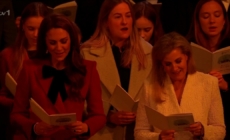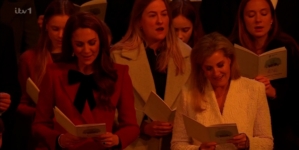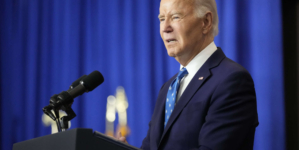-
Baby Sleep Consultant’s Important PSA for Parents ‘In The Trenches’ - 24 mins ago
-
12/24: CBS Evening News – CBS News - 33 mins ago
-
76ers beat Spurs, Joel Embiid ejected during 2nd quarter | First Things First - 46 mins ago
-
‘Connections’ Christmas Day 2024: Hints and Answers for Puzzle #563 - about 1 hour ago
-
Caitlin Clark honored as AP Female Athlete of the Year for impact on women’s sports - about 1 hour ago
-
Why It Took 248 Years for the Bald Eagle to Become America’s National Bird - 2 hours ago
-
Lamar Jackson is determined to see Beyoncé’s Christmas show at halftime of Ravens-Texans - 2 hours ago
-
Together at Christmas’ at Westminster Abbey - 2 hours ago
-
Biden Signs Bill Outlawing Pensions for Lawmakers Convicted of Some Crimes - 2 hours ago
-
Can Michael Penix Jr. lift Atlanta Falcons AGAIN vs. Jayden Daniels, Commanders? | NFL on FOX Pod - 3 hours ago
Orbán: “Hungary will chart its own path to prosperity and peace”
At an international press conference in Budapest, Prime Minister Viktor Orbán delivered a comprehensive overview of Hungary’s successes during its EU presidency, the country’s domestic policy milestones, and its position on key global and European challenges. PM Orbán emphasized Hungary’s resilience in defending national sovereignty and pursuing economic reforms while advocating for peace and stability on the international stage.
Expressing solidarity with Germany following the Magdeburg terrorist attack, Prime Minister Orbán opened his remarks with a somber reflection on the persistence of such tragedies in Europe. “These issues are no longer anomalies — they have become routine,” he said. The prime minister linked this grim pattern to Europe’s migration crisis, stating unequivocally: “These events only began with the wave of mass migration. Hungary will not allow itself to become a nation where such attacks are the norm.”
However, the prime minister was critical of the European Commission’s current trajectory, highlighting the €200 million fine imposed on Hungary for non-compliance with the EU’s migration pact, along with a daily penalty of €1 million. “This is not cooperation — it’s coercion,” PM Orbán said. He reiterated Hungary’s commitment to protecting its borders and national identity, even in the face of punitive measures.
PM Orbán also lauded Hungary’s recent EU presidency, describing it as one of the most diplomatically intensive periods in the nation’s history. Over 1,000 meetings and numerous agreements underscored Hungary’s role in driving progress within the EU.
One of the presidency’s key accomplishments was the expansion of the Schengen Area to include Romania and Bulgaria. “This was a decade-long stalemate that Hungary helped break,” he noted, emphasizing how this move will enhance regional connectivity and benefit Hungary. For example, the number of road border crossings between Hungary and Romania will nearly double by next January, reducing average travel distances by half.
On European agriculture, PM Orbán revealed breakthroughs in discussions on the EU’s agricultural future beyond 2027. “All 27 agriculture ministers have agreed on a shared vision for Europe’s agrarian economy, paving the way for financial and strategic planning,” he said. These agreements will have a profound impact on Hungary, where agriculture remains a vital sector.
The prime minister also pointed to the newly launched European Competitiveness Pact, which seeks to halt the EU’s economic decline. “This is not just a bureaucratic initiative — it’s a commitment to restoring Europe’s position on the global stage,” he stated.
PM Orbán presented an optimistic outlook for Hungary’s economy, highlighting strong indicators like a 10 percent rise in real wages, a 32 percent surge in construction orders, and increasing retail activity. “Hungary’s economy is poised for robust growth in 2025, driven by a 21-point economic action plan that includes the largest minimum wage hike in our history,” he said.
Support for young workers and small businesses also took center stage. The government will introduce targeted loans for workers just starting their careers and provide capital to small businesses willing to adopt Hungary’s ambitious wage increase plan. “This is about building a Hungary where hard work pays off for everyone, whether they are young professionals or seasoned entrepreneurs,” PM Orbán remarked.
PM Orbán also spoke about the outcome of the latest national consultation. The most recent consultation, focusing on economic policy and neutrality, saw participation from over 1.2 million Hungarians. “This level of engagement proves that our people care deeply about shaping the nation’s future,” the prime minister said. The findings will guide Hungary’s transition to a peace-oriented economy and its push to support families and businesses through innovative programs.
Turning to the global stage, PM Orbán discussed the implications of Donald Trump’s election as U.S. president. “A shift is coming,” he declared, noting that Trump’s policies are likely to bring significant changes to transatlantic relations. “Europe must recognize this new reality and adapt accordingly,” he said.
He emphasized that Hungary’s stance on traditional values and family protection aligns closely with Trump’s vision for Western societies. “This is an opportunity for Europe to recalibrate and return to a values-based approach,” he stated.
On the war in Ukraine, PM Orbán reaffirmed Hungary’s unwavering stance for peace. “This is not Hungary’s war. It is a conflict between two Slavic nations, and we must work towards isolating it, not escalating it,” he said. Hungary’s proposal for a Christmas ceasefire and prisoner exchange reflects its commitment to peace-building efforts, the PM added.
Responding to a question about granting political asylum to former Polish deputy justice minister Marcin Romanowski, Prime Minister Orbán refrained from escalating Hungary’s recent disagreement with Poland, emphasizing the importance of maintaining a manageable relationship between the two nations. “I don’t want to elevate the matter to the prime ministerial level,” he stated, opting not to comment directly on Poland’s rule of law. Instead, he focused on the procedural rigor underlying Hungary’s position. “We conducted a thorough study of the situation, and the responsible minister made a decision based on the findings,” he explained. While expressing confidence in the integrity of the decision-making process, the prime minister hinted at the likelihood of future similar decisions: “It’s no secret when I say that I don’t think this will be the last one.”
The prime minister concluded by outlining Hungary’s readiness to lead Europe in sustainable innovation, focusing on electromobility and renewable energy storage. “The world is moving into an era of green transformation, and Hungary will be at the forefront,” he declared. He also expressed confidence in Hungary’s ability to capitalize on new economic opportunities, noting upcoming investments in electromobility and strategic industries.
Source link































